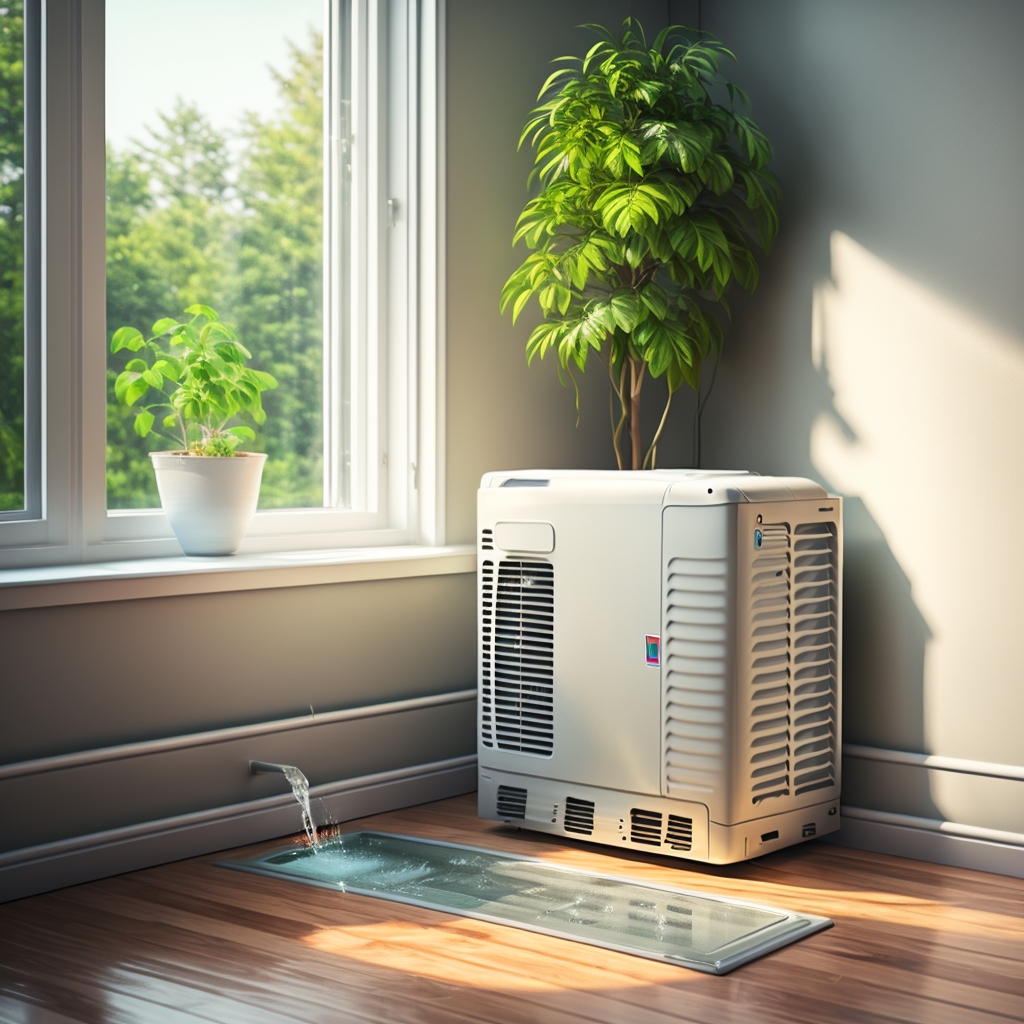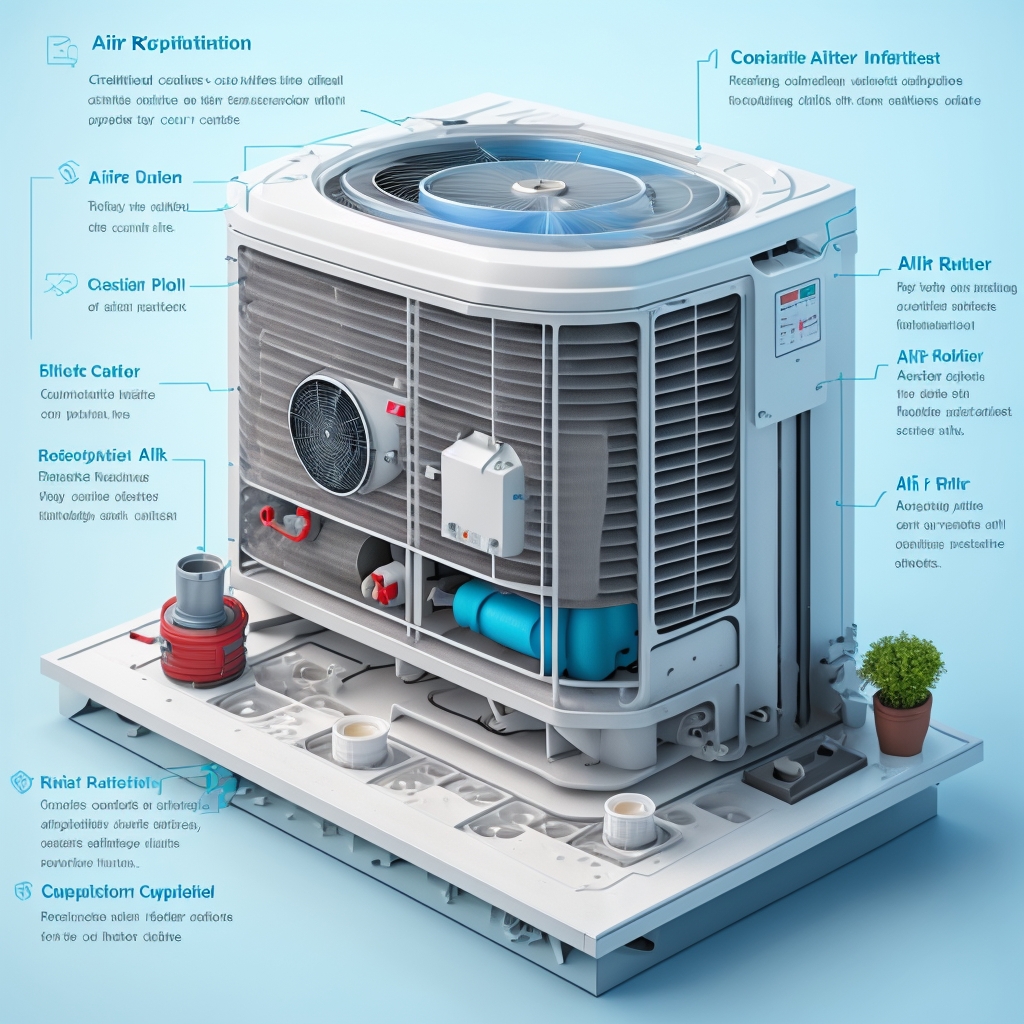“Why Is Your Air Conditioner Dripping Water? Uncover the Possible Causes!”

An air conditioner spouting water is an unusual occurrence and could indicate a technical issue. During the operational process, air conditioning units absorb warm air and run it through the evaporator coil. This action strips the air of its heat, which leads to the condensation of moisture. Though this liquid gets expelled, it’s an abnormality for an AC to blow out water. The device has a drain pan that collects the condensate, followed by a drain line, which disposes it correctly, meaning the unit shouldn’t leak water. Below are three primary causes of this issue:
1) A Blocked Condensate Drain Line
During operation, the evaporator coil of your AC absorbs the heat from the air and the process of condensation, leads to the generation of a condensate. This condensate collected in a condensate pan and is channeled outside or into the sewer by a gravity-driven flow via the drain line. However, the presence of dust and small particles can accumulate in the drain line and cause obstructions, resulting in overflow and eventually, water leakage. A damaged drain line can exhibit similar issues.
2) A Frozen Evaporator Coil
The evaporator coil performs the critical function of chilling air by forcing it over a series of pipes containing coolant gas. This gas, thus transformed into a liquid, undergoes a second transformation into gas as it traverses the condenser coil. This gas is key to absorbing heat from the indoor air and cooling your home. However, problems can arise when the evaporator coil freezes over.
a) A Blocked Air Filter
An air filter plays a pivotal role in maintaining the efficiency of your AC, acting as a shield for indoor and outdoor coils, by trapping dirt. Over time, accrued dust and dirt can reduce airflow and cause your evaporator coil to freeze.
b) Insufficient Refrigerant Levels
An air conditioner uses a refrigerant to chill the evaporator coil which absorbs heat and transfers it outside before cooling down. A lack of sufficient refrigerant can compromise the unit’s cooling ability, and could even freeze the evaporator coil, especially if there is a leak.
c) Cold Weather
In colder weather, the outdoor unit could intensify the refrigerant’s coldness, and as the evaporator coil attempts to warm up, the lack of sufficient warmth may cause it to freeze.
3) Misaligned AC Installation
In a correct installation, the AC’s drain pan leans towards the drain line, ensuring proper drainage of condensate. A reversed tilt could cause water to pool and leak out.
Solutions:
First, inspect the air filter. If it’s dirty, either clean or replace it. Second, a professional may need to replenish the refrigerant levels if they are low. Third, adjust the temperature settings, especially in colder weather, to prevent overcooling. Fourth, consult a professional for leakages or damage. Lastly, if these steps don’t work, contact a professional for a servicing.
Additional Insights:
Air conditioners can help lower humidity to a certain extent. However, dehumidifiers are better suited for this task. Also, be aware that a leaking air conditioner could foster black mold, posing a health risk. Ensure you dry any leaked water promptly to prevent this. Moreover, using an AC and dehumidifier at the same time is not recommended as it would be energy-inefficient and could affect performance. Hence, it is best to opt for a device designed for the required purpose.
